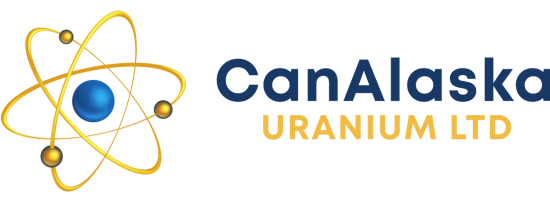Vancouver, Canada, June 5th 2009 – CanAlaska Uranium Ltd. (TSX.V — CVV) (“CanAlaska” or the “Company”) has re-commenced drilling on the Black Lake project, located within the Black Lake First Nation Reserve, on the northern rim of the Athabasca basin, Saskatchewan. The current program is a continuation of the March winter program, following a shut down for spring thaw. The drilling will continue on the Platt Creek zone, 4 kilometres south of the basin rim. In this area the sandstone unconformity targets are interpreted at 200 metres depth.

The drill program at Black Lake is following-up on geological and geophysical targets identified from airborne and ground surveys carried out by the Company in 2008. The current drill targets are along the Platt Creek fault/conductor, which starts in the north, at the limit of the Black Lake First Nation Reserve, and extends south into claims held by UEX/AREVA. CanAlaska has been successful with surface prospecting for uranium mineralization in this area, and there are reported significant uranium intercepts from drill testing on the adjacent property. (See also News Release of March 23 2009). The location of the Black Lake project is shown in Figure 1, and the regional geology and structures are shown in Figure 2, along with the regional magnetic image.

March 2009 Drill Results
Drilling commenced on the northern portion of the Platt Creek fault in March 2009. This was in the Patterson Creek area, on a lake covered portion of the main conductive trend. Drilling was curtailed early because of ice break-up on the lake.
The first drill hole for the winter program, BLK001, went directly into basement and intersected intensely mylonitic graphitic pelites. The second drill hole, BLK002, was lost near surface. Drill hole BLK 003 is of interest because it had a significant hematized zone of mafic tuff near surface, from 53-60 metres depth, with elevated boron (428ppm) and uranium values (11ppm). These holes and later drill hole BLK006, see below, confirm the potential for uranium mineralization within the zone.
Additional March drill holes BLK004, and BLK005, located to the west of the first holes, penetrated the very thin (< 5 metre) sequence of overlying sandstone units. In these sandstones there was boron enrichment to 143 ppm and, significantly, more boron enrichment and hematized tuff units in the underlying basement rocks (with up to 733 ppm boron). These two holes were targeting splay structures off the main conductor drilled in holes BLK001. The structures are defined as weak VTEM conductors from the airborne survey, and are located within a major north-south trending magnetic lineament. Drill hole BLK005 intersected an 8 metre section of 12 ppm U3O8 in the upper basement rocks. All of the sandstone intercepts were characterized by intense hematite alteration, which then extended up to 60 metres into the basement rocks.
Drill hole BLK006, drilled back on the main Platt Creek fault zone, south of BLK001, had multiple zones of intense fracturing as well as strong hematization in an amphibolitic gneiss unit.
Drill holes BLK001 to BLK006 are all located up ice of the “Rapids” boulder train, which has uranium-arsenic mineralized boulders with assays of up to 1.9% U3O8. The Company is very pleased with these first exploration holes in this area of the northern portion of the conductor, and anticipates a series of new holes across this concentrated target area, when conditions permit. The strong boron alteration and trace uranium mineralization, along with the intense hematization indicate hydrothermal mineralizing events associated with the geophysical targets.
June 2009 Drill Program
The second half of the program, targeting the land based conductive anomalies on the Platt Creek fault zone has now commenced. This main target is approximately 4 km south of the Patterson Creek drill holes.
In this area, mineralized sandstone boulders were found during prospecting at Platt Creek, down-ice of the major geophysical target. The Platt Creek fault is a major regional fault system, which has previously shown high-grade uranium mineralization in drill holes on the adjacent mineral exploration property (Black Lake Property owned by UEX/AREVA). The mineralized boulder samples from summer 2008 work were collected from low swampy ground and are detailed below in Table 1.

The Company expects the current drill program to extend until the end of June. The Company is fully-funded for current operations, but is budgeting for further extensive summer-fall 2009 exploration programs, through its joint venture partnerships, and from current treasury. Drill and assay results from the Black Lake and other active projects will be provided as they become available to the Company.
All of the prospecting and drill samples from the Black Lake project were submitted to Acme Laboratories Vancouver, an ISO 9001:2000 accredited and qualified Canadian Laboratory, for their Group 4B analysis. These samples were analysed for uranium and multi-element geochemistry by tri-acid digestion and ICP-MS. The samples were collected by CanAlaska field geologists under the supervision of Dr. Karl Schimann, and were shipped in secure containment to the laboratories noted above. Peter Dasler, M.Sc., P Geo. is the qualified technical person responsible for this news release.
About CanAlaska Uranium Ltd. — www.canalaska.com
CANALASKA URANIUM LTD. (CVV — TSX.V, CVVUF — OTCBB, DH7 — Frankfurt) is undertaking uranium exploration in twenty 100%-owned and two optioned uranium projects in Canada’s Athabasca Basin. Since September 2004, the Company has aggressively acquired one of the largest land positions in the region, comprising over 2,500,000 acres (10,117 sq. km or 3,906 sq. miles). To-date, CanAlaska has expended over Cdn$50 million exploring its properties and has delineated multiple uranium targets. The Company’s geological expertise and high exploration profile has attracted the attention of major international strategic partners. Among others, Mitsubishi Development Pty Ltd, a subsidiary of Japanese conglomerate Mitsubishi Corporation, has undertaken to provide CanAlaska C$10 mil. in exploration funding for its West McArthur Project. Exploration of CanAlaska’s Cree East Project is also progressing under a C$19 mil. joint venture with a consortium of Korean companies led by Hanwha Corporation, and comprising Korea Electric Power Corp., Korea Resources Corp. and SK Energy Co, Ltd. A Memorandum of Understanding has also recently been executed with mining partner East Resources Inc. to commence exploration on the NE Wollaston Project comprising a potential 100,000 metres of drill testing.
On behalf of the Board of Directors
“Peter Dasler”
Peter Dasler, P. Geo., President & CEO
Investor Contact: Emil Fung, Vice President, Corporate Development
Tel: +1.604.688.3211 Email: info@canalaska.com
The TSX Venture has not reviewed and does not accept responsibility for the adequacy or accuracy of this release: CUSIP#13708P 10 2.
This news release contains certain “Forward-Looking Statements” within the meaning of Section 21E of the United States Securities Exchange Act of 1934, as amended. All statements, other than statements of historical fact, included herein are forward-looking statements that involve various risks and uncertainties. There can be no assurance that such statements will prove to be accurate, and actual results and future events could differ materially from those anticipated in such statements. Important factors that could cause actual results to differ materially from the Company’s expectations are disclosed in the Company’s documents filed from time to time with the British Columbia Securities Commission and the United States Securities & Exchange Commission. Not to be construed as an offer to buy or sell securities of CanAlaska Uranium Ltd.

